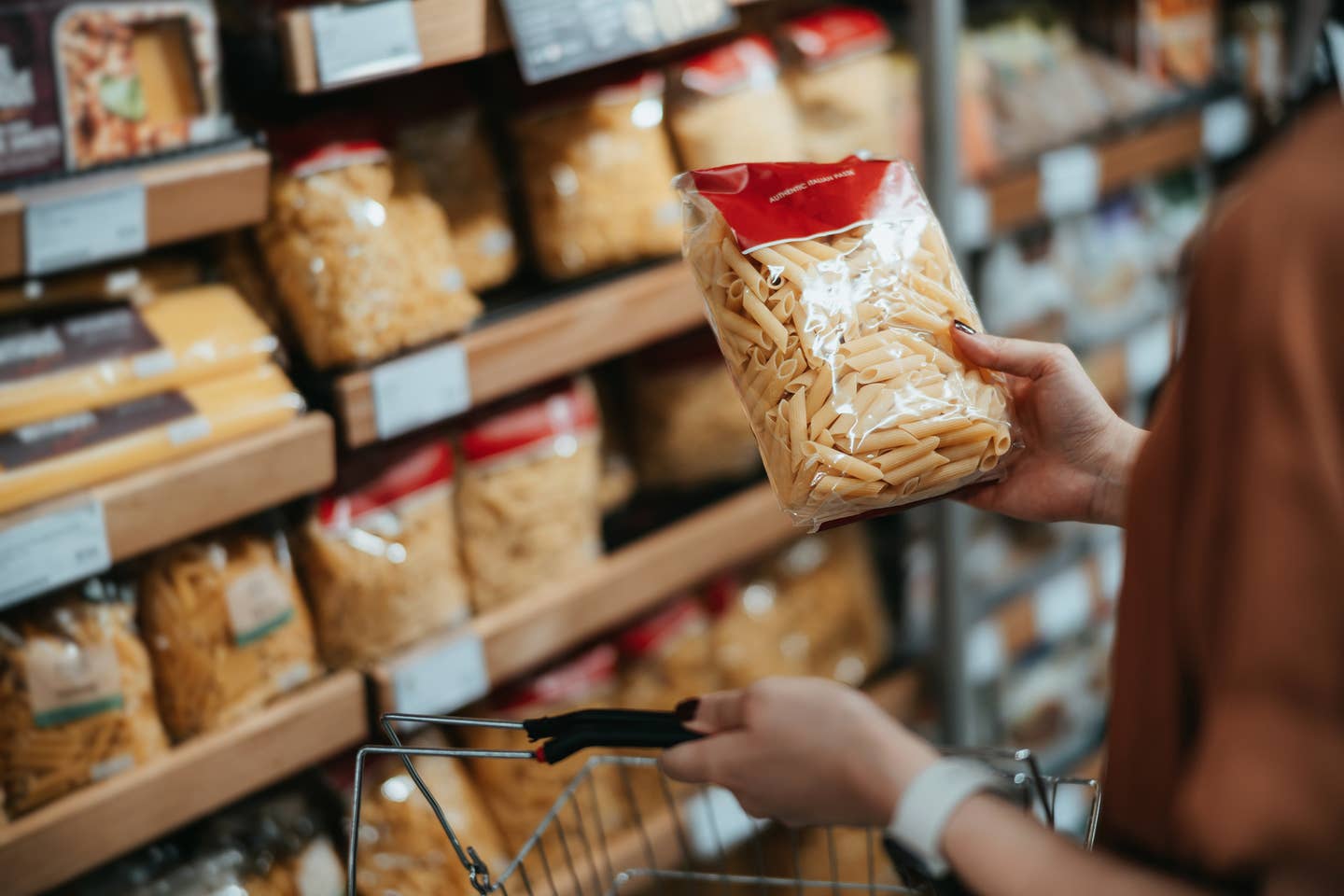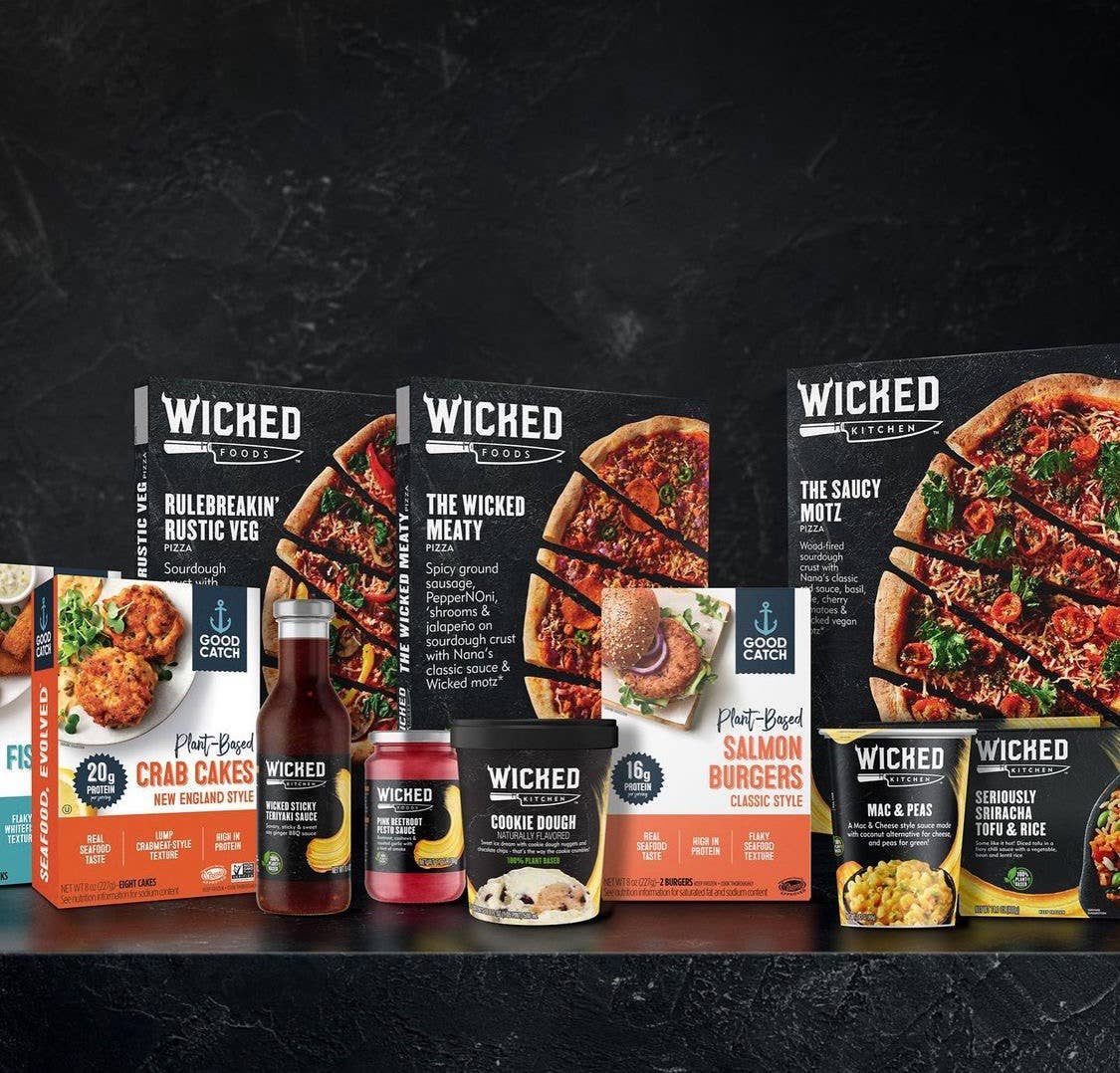
The Top Innovations of the Year in Plant-Based and Vegan Foods
This year can’t end fast enough, as far as many people are concerned, but the exception is the plant-based food industry, which took big leaps forward in 2021, specifically in food tech innovations, new product development, and the sheer numbers of people eating more vegan foods.
Over The last year, the climate crisis reached a new level of urgency and led to unprecedented environmental disasters with deadly consequences from floods to fires and even the worst tornadoes ever witnessed. Meanwhile consumers are adopting plant-based eating habits in record numbers, as 54 percent of Millennials self-define as flexitarians and one third of consumers call themselves “mostly vegetarian,” as per a Good Food Institute report. A recent survey found that consumers are aware that plant-based protein is preferred, and while 61 percent admitted this, there is a lag between awareness and action. But that gap is closing fast, as new products are launching to make it ever-easier to be plant-based without sacrificing taste, satisfaction and even affordability.
By highlighting the dangers of unsustainable industrial food and farming practices, companies and governments are shifting to meet consumer demand for plant-based and sustainable alternatives. Organizations such as the Plant Based Treaty and Greenpeace have spent the last year working to place the responsibility onto the meat and dairy industries, so the pressure is on to create more plant-based products. The growth that started in 2019 shows no signs of slowing down. The plant-based meat market alone will reach $19 billion by 2027, according to a study released by Valuates Reports.
Bottom line: People want sustainable, healthier, and safer products made from plants. And 2021 saw some of the most exciting new developments in that area.
1. McDonald's McPlant Comes to America
While the fast-food industry has added more plant-based alternatives to the menu, consumers found themselves waiting for the biggest fast-food establishment to catch up. McDonald's finally debuted its plant-based McPlant patty made with Beyond Meat. Following months of anticipation. the company announced that it had finally rolled out the plant-based burger in select locations.
The UK version of the McPlant arrived first with completely vegan ingredients. Shortly thereafter, McDonald’s started offering the McPlant in the United States but with full-dairy cheese and mayo, so it’s not vegan by a long shot. These details notwithstanding just the very fact that McDonald's has entered the plant-based market signifies a huge shift for plant-based foods, and especially fast foods.
2. Cultivated Chicken Gets Ready for Its Star Turn
Food technology companies are now making meat in the lab without the need for animals to die in the equation. The meat has been grown from original cells that make it chicken-identical – so vegans and plant-based eaters can debate how they feel about that – but as for the sustainability aspect, it is certainly going to involve using fewer greenhouse gasses eventually.
“Cultured meat” is the name for this whole new area of food innovation, and it has been expanding faster than ever before, as companies such as UPSIDE Foods and GOOD Meat have developed cell-based chicken products that aim to replace meat from chickens in your supermarket. As of now, cell-based meat has only secured regulatory approval in Singapore, other countries are likely to approve it for sale in the coming months including Qatar and the United States.
Money is flowing into this sector of alternative meat innovation: The largest ever investment into cultured meat was just announced as Future Meat secured $347 Million this month and GOOD Meat – a pioneer in the cell-based meat industry and owned by Eat Just, makers of JUST Egg – brought its total investment to $267 million earlier this year. The total market for cell based or cultured meat is expected to reach $2.7 billion by 2030.
Celebrities Such as Leonardo DiCaprio and Ashton Kutcher have invested in cell-based meat companies.
3. The Michelin Stars Make Up a Constellation
Everyone paid attention to Eleven Madison Park’s shift to a plant-based menu in spring of 2021, and the long waits for a table made news in The New York Times and other publications. But lesser-known moves have been happening all around the world of fine dining for years. Just this summer, chef-owner Dominique Crenn of Atelier Crenn, announced her Michelin-starred restaurant will become the first restaurant to feature cell-based chicken in the United States. Chef Crenn removed all meat from her menus back in 2018, marking her one of the first Michelin-starred chefs to jettison traditional meat-centric dishes.
Now, upscale restaurants – which once rejected vegan dishes on the menu – have embraced plant-forward cooking and the Michelin judge panel reflects this striking change, announcing it had awarded 81 stars to vegetarian and vegan restaurants in 2021, including Milan's Joia, Los Angeles' Le Comptoir, and New York City's Eleven Madison Park.
Following this, celebrity chefs have begun to see the light. Chef Alain Ducasse opened a plant-forward restaurant in Paris called Sapid – serving 95 percent plant-based foods. More recently, Geranium (which has been named the second-best restaurant by The World’s 50 Best) just announced that it will drop meat from its menu starting this January. Chef Rasmus Kofoed, who is vegan, developed a 22-course plant-forward menu that changes some of the restaurant's most iconic and signature dishes.
Not to be outdone, Chef Marco Pierre White just announced that he will begin offering 3D printed whole cut steak from Redefine Meat. That company has created a proprietary production system using artificial intelligence to reproduce the muscle layering with plant-based ingredients. As big names like White, Crenn, and Ducasse all embrace plant-based innovations, there is only more excitement to come.
4. Ice Cream Without the Cow, But With the Dairy
One of the most exciting developments in dairy is the creation of “dairy identical” products that are cellularly exact replicas of what cows make, except these use machines to ferment the ingredients. For vegan consumers, these dairy replacements are a good choice since animals don’t get exploited in the creation of the product. For plant-based consumers or those who are looking to avoid casein, the primary protein in dairy, these are not a good solution since they include both casein and whey. If you are lactose intolerant, this can be a godsend, since these products are made without lactose, but use micro-flora instead.
Perfect Day is now used in products such as Brave Robot and Modern Kitchen, which now can offer animal-free ice cream to those who are hoping to eat for sustainability and improve the welfare of animals. Using proprietary technology, the food-tech start-up is providing animal-free dairy proteins to create products that reduce greenhouse gas emissions.
Leonardo DiCaprio has joined Perfect Day as an advisor, putting the company in an even more visible position in 2021. Brave Robot – the ice cream brand that uses Perfect Day’s proteins – passed the one million pints sold milestone in 2021, claiming that it saved the equivalent of 1 million miles of CO2 emissions.
5. Epicurious Cuts Red Meat and Elle Goes Fur-Free
Epicurious, the website from Condé Nast that featured food, recipes, restaurant reviews, and travel content, announced that it would cut beef from its coverage starting now, Condé Nast Publications decided it was finally time to help consumers learn how to cook and consume without including red meat. By removing beef from the recipes, menus, and articles, Epicurious took a stand against factory farming and took a small step toward a more sustainable outlook. (The company still features dairy, fish and poultry, pork, and lamb.)
ELLE became the first major fashion magazine to ban fur from its publications. While they are the first magazine to do so, designers, retailers, and others have already banned fur. Over the last years Saint Laurent, Valentino, Gucci, Canada Goose, and all the major designers have banned fur from their collections. Bloomingdales, Macy’s, Nordstrom, and Neiman Marcus no longer carry fur in their stores.
Now, ELLE joins the movement away from fur. California became the first state to ban furs sales and similar laws have been proposed in other states including New York. For Elle, the ban prohibits the mention or feature of fur in advertisements, editorials, social media, coverage of fashion shows, images, and the website. Elle, which publishes 41 editions, is the first major mainstream media to ban fur internationally.
6. Vejii and PlantX Bring Vegan Food to Your Doorstep
As exciting as new vegan products can be, consumers are left with one question: Where can people buy them? PlantX launched its retail platform and just two years later grew fast enough to offer its stock on the Canadian exchange. Now both Vejii and PlantX offer consumers a fully vegan experience online, and if you want to shop in person, PlantX has brick-and-mortar stores called XMarket where anybody can buy the latest plant-based products in every category. Veji just announced it had bought VedgeCo. which serves restaurants and helps foodservice companies offer more vegan products.
PlantX partnered with Amazon to allow consumers to check out using their Prime accounts, which also means you can get those vegan nuggets delivered overnight if need be. The online retailer aims to help small or newer companies boost their distribution.
XMarket, which has opened 2 stores in California (and has two more in Canada), currently is working with celebrity chef Matthew Kenney, and has plans to distribute his frozen meals that are ready to eat, called XFood. Expect more growth from this company in 2022 and beyond.
7. Impossible Foods Plays It Smart. Beyond and Oatly Struggle
Plant-based meat giant Impossible Foods refuses to slow down after years of leading the alternative protein market. The vegan pioneer launched the Impossible Burger in 2016, providing consumers with the most groundbreaking plant-based burger at the time. The company paved the way for other plant-based protein companies and recently secured an additional $500 million in funding, bringing its total investment to nearly $2 billion. The company has not yet gone public and others that have are taking a beating in the stock market.
Beyond Meat’s stock price has had a drubbing and the company, once worth more than 8 billion is now at about 4.35 billion, which while isn’t bad, it’s not the growth the investors had hoped for. Similarly, Oatly, which debuted on the New York Stock Exchange after much-anticipated hype after its popular Super Bowl ad, has seen its stock price drop from over $28 last June to around $8 today. So while these companies offer popular meat and dairy alternatives, Impossible looks to be playing the long game and coming out ahead.
The latest funding round will help Impossible maintain its market position. It recently released Impossible Meatballs at 3,000 retailers across North America. The expansion is just the latest in new product offerings that already include Impossible Burgers, Impossible Pork, Impossible Sausage, and Impossible Nuggets.
8. Plant-Based Seafood Swims Into the Mainstream
In 2021 consumers saw more choices in plant-based chicken, pork, and beef than ever, but the biggest growth and innovation area has been in plant-based seafood. Companies selling seafood alternatives have collectively raised $116 million in just the past year, including Blue Nalu, New Wave Foods, and Gathered Foods, the parent company of Good Catch, which also was named PETA's company of the year in 2021.
A new Plant-Based Seafood State of the Industry Report, from The Good Food Institute, concludes that the plant-based seafood sector is an exciting area of growth, gaining customer acceptance as more consumers are looking to avoid eating fish. While pescatarians and flexitarians still eat fish, more consumers are seeking alternatives as the awareness of unsustainable fishing practices grows. Some call it the “Seaspiracy Effect,” after Netflix debuted Seaspiracy last summer, a disturbing documentary that shows how modern fishing practices are hurting the world’s oceans and biodiversity.
Consumers are embracing new seafood alternatives such as Good Catch's vegan tuna, OmniFoods' crab cakes, Blue Nalu's cell-based yellowtail, as these products taste better than ever and can completely take the place of fish in sushi, sandwiches, and dinner entrees. Food giants such as Nestle have started developing vegan seafood products. Plant-based seafood may be in the early stages, but the industry shows no intention of slowing down.
Bottom Line: For Consumers, 2021 Was a Great Year of Innovations
Whether you are eating vegan or plant-based for sustainability or your health or the sake of animal welfare, the innovations coming out of the plant-based food industry are making it easier than ever to eat plant-based and love it.
More From The Beet






